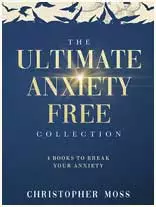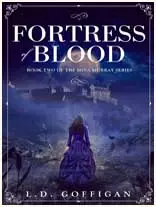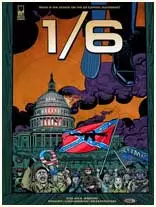What Is the Author's Main Purpose for Writing the Memoir 'Night'?

Elie Wiesel wrote the memoir 'Night' to share his experiences during the Holocaust. While the book talks about the horrors he faced, it serves a greater purpose than storytelling. Wiesel intended to convey something beyond the surface level.
This blog delves into the deeper motivations behind 'Night,' exploring why Wiesel felt responsible for sharing his voice and the lasting impact the memoir writer continues to have.
Understanding 'Night': A Beacon of Holocaust Literature
The memoir, 'Night' is a significant work of literature about the Holocaust that everyone should read. It tells the story of a person named Wiesel who went through terrible experiences during that time. The short but powerful book shows how people can still have hope and courage even in the worst situations. It's a story that will touch your heart and help you understand what happened during one of the darkest times in history.
Elie Wiesel: The Man Behind the Memoir
The life and experiences of Elie Wiesel are crucial for appreciating the depth and authenticity of 'Night.' A Nobel Prize laureate, renowned author, and political activist, Wiesel dedicated his life to ensuring that the atrocities of the Holocaust would never be forgotten. Our exploration of "What Is the Author's Main Purpose for Writing the Memoir 'Night'" provides an in-depth look at his motivations and legacy.
A Duty to Remember: Bearing Witness to the Holocaust
At its core, 'Night' serves as a stark reminder of the atrocities committed during the Holocaust. Wiesel acts as a witness, chronicling the unimaginable suffering he and countless others faced in Nazi concentration camps.
Here's how 'Night' serves as a powerful testament to the horrors of the Holocaust:
- A vivid portrayal of suffering: Wiesel's graphic descriptions transport readers to the depths of human cruelty, forcing them to confront the harsh realities of the Holocaust.
- Loss of innocence: The memoir depicts the systematic dehumanization of individuals, highlighting the profound impact on innocent lives.
- Importance of memory: By sharing his story, Wiesel ensures that future generations do not forget the horrific events of the Holocaust.
'Night' is a crucial piece of historical literature, a permanent record of a dark period, and a stark reminder of the importance of fighting against oppression and prejudice.
A Quest for Meaning: Grappling with Loss and Faith
'Night' extends beyond simply recounting the horrors of the Holocaust. Wiesel begins a personal journey, grappling with losing faith, identity, and loved ones.
Here's how 'Night' explores the complexities of faith and human resilience:
- Loss of faith: Weisel deals with the tough queries that may arise from the trial of the faith when facing overwhelming pain.
- Search for meaning: The memoir narrates the power of human nature and the profound quest for the meaning of life within the context of unspeakable hardships.
- Power of storytelling: Writing 'Night' becomes more than a way of recovery for Wiesel. Instead, it is the way he can deal with his trauma and find a meaning for his existence.
Through his introspective writing, Wiesel compels readers to confront their beliefs and consider the importance of hope and perseverance even in the darkest times. Writing a memoir outline could be a demanding task. Especially when it is something so distressing and personal. This is why there are professional memoir writers for hire with the ideal expertise in this genre. These writers make it easier to execute your writing endeavors without having you worried and focus on other aspects simultaneously.
A Call to Action: Spreading Awareness and Preventing Future Atrocities
'Night' serves as a historical record, a personal reflection, and a powerful call to action. Wiesel urges readers to remember the past and fight against hatred and intolerance.
Here's how 'Night' serves as a beacon of hope and a call for action:
Elie Wiesel penned 'Night' with several key objectives in mind:
- Bearing Witness: The author exerted every effort to give a detailed and heartrending account of the unbearable suffering he and many others had to go through, hoping that such atrocities would never be forgotten.
- Raising Awareness: Through illustrating human inhumanities, Wiesel aimed to bring the world to a standstill and sensitize it to the world's threats from hatred. He was hoping that such a novel would help to eradicate future atrocities.
- Conveying the Horrors of the Holocaust: By telling the stories realistically and cruelly, he wanted the people to see what happened in the camps without blurring the image.
- Preserving Memory: Wiesel was determined to respect the Holocaust victims who would not be known to all the generations to come except for their stories and sacrifices.
By sharing his harrowing experiences, Wiesel compels readers to actively participate in creating a more just and compassionate world.
The Enduring Legacy of 'Night': A Timeless Story With a Message for All
'Night' transcends the boundaries of a straightforward memoir. It's a testament to the enduring human spirit, a call to remember the past, and a beacon of hope for a brighter future.
Decades after its publication, Wiesel's book still holds a powerful message. The book reminds us of the dangers of unchecked hatred and the importance of standing up for what is right.
Are you considering writing your memoir? Memoir writing services can help you share your unique story with the world. Memoir ghostwriters can assist with structuring your narrative, shaping your voice, and ensuring your story reaches its full potential.
limited Time offer
- 00
- 00
- 2





